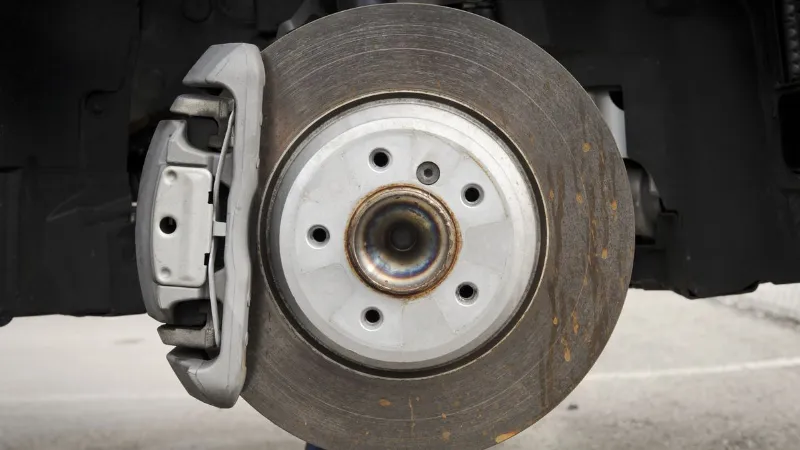Have you ever wondered how long can you go without an oil change? While our mechanics definitely do not advise pushing your car to its limits in this regard, we are happy to respond to your query.
Every 5,000 to 7,500 miles, most cars require an oil change. If you’re using synthetic oil, the maximum oil change interval increases to about 10,000 miles.
The actual interval will vary depending on the make and model of your car; keep in mind that these numbers are only general guidelines. For a detailed recommendation on the recommended frequency of oil changes, consult the owner’s manual.
Keep reading if you’d like to know more.
When to Get An Oil Change
An oil change used to be required every 3,000 miles. But over time, engine technology has advanced significantly. Due to this, cars can generally go 5,000 to 7,500 miles before needing an oil change. Aside from that, if your car uses synthetic oil, you can go 10,000 or even 15,000 miles between oil changes.
Just remember that these figures are merely suggestions. They do vary by make and model, so you’ll want to check your owner’s manual for the exact oil change interval.
For your car to keep running at peak performance, your engine needs the correct oil, but how much oil does my car need? The engine in your car will determine that, I suppose. Most engines require five to six quarts of fuel. Fortunately, it doesn’t have to be difficult to give your car the right amount of oil; we are here to assist.

Instances of More Frequent Oil Changes
Depending on the weather and how you drive, you might need an oil change sooner than you anticipated. For example, some cars need an oil change every 3,000 miles under “severe driving conditions,” which can include:
- Traveling in constant stop-and-go traffic
- Frequently short trips of less than five miles in normal temperatures and 10 miles in freezing temperatures
- Driving on dusty, sandy, or gravelly roads
- Towing or hauling heavy equipment
It is best to take preventative measures because all of these variables can affect when an oil change is necessary. Regular oil changes will increase your car’s reliability while lowering your overall operating costs.
Not certain “how much does an oil change cost”? Why oil change is essential? Discover the answer to these questions in this detailed and explanatory guide.
The price of an oil change varies depending on whether you do it yourself or hire a mechanic as well as what kind of oil your car needs. For a basic oil change at regional and national retailers, you can expect to pay at least $30 to $100.
Warning Signs That An Oil Change is Needed
If you’re not sure exactly when an oil change is warranted, there are some warning signs that you can look out for…
- Change in color and consistency:It is translucent and amber in color when engine oil is clear. As the oil performs its function, it will begin to gather debris, turning it black and grittier. By taking out the dipstick, check the consistency and color. It’s time for an oil change if the dipstick can’t be seen through the oil.
- Burning oil smell:There most likely is an oil leak if you smell burning oil inside the cabin.
- Knocking noise from the engine:Oil is used to prevent the engine’s moving parts from grinding against each other. The engine will begin to knock loudly if these components are improperly lubricated. Before the engine overheats and stops functioning altogether, you should get an oil change.
- Dashboard warning light:Insufficient oil in the car will cause the oil change light to illuminate. If the check engine light comes on, things may have gotten so bad that the engine is in danger of being harmed. In either case, your car will require immediate attention.

What Happens If You Don’t Get An Oil Change?
It once happened that a car was brought in that had traveled over 12,000 miles—far more than the suggested mileage interval—since its last oil change. The pistons in the engine had seized because it had nearly reached its dry-run limit. It was beyond repair, and the entire engine had to be replaced.
This is because once motor oil transforms into sludge, it ceases to cool the engine or lubricate its components. The moving parts warp and deteriorate as they rub metal against metal in the intense heat.
The engine will eventually seize or blow a gasket. When you try to start the car, you might get a small “click” noise or nothing at all. Once an engine seizes, it cannot be repaired; a replacement is required.
Preventive maintenance, which includes regular oil changes, is one of the most crucial things you can do to keep it running smoothly. Looking at your jam-packed calendar, you naturally want to know: “How long does an oil change take?” Expect an oil change to take 15-45 minutes. On the basis of a few assumptions, that is a general estimate.
Why Oil Changes Matter?
Frequent oil changes are necessary for keeping your car performing at its best. Keeping the various components of your car’s engine well-lubricated is the main purpose of motor oil. Oil acts as a barrier between the moving parts of the engine, dissipates heat, picks up debris, and carries metal and dirt particles away.
Your car’s oil loses effectiveness over time as a result of exposure to heat, air, and moisture. The oil filter gets blocked with debris, and the oil thickens into sludge due to oxidation. How Often Should I Change My Oil Filter?
The engine parts that the oil is supposed to protect are being worn down by the sludge and debris, requiring very costly repairs. But all of this could be avoided with a little bit of time and money!

FAQs
How Long Can You Go Without An Oil Change When You Drive An Older Car?
The older your car, the more frequent the oil changes. It makes sense. The longer you own your car, the more miles you put on it, and that causes wear and tear. Greater attention to routine maintenance is called for, and that includes oil changes.
Can I Go 1000 Miles over My Oil Change?
Regardless of how many miles you’ve driven, keep in mind that the majority of manufacturers advise getting an oil change twice a year. That’s right—even if you’ve only driven 1,000 miles since your last oil change, you still need to get an oil change every six months.
Can I Drive My Car past Oil Change?
You should change your oil as soon as the oil change light comes on. You can drive a few hundred miles before any problems or damage might start occurring. It’s possible to damage your car’s engine if the light is illuminated as a result of low oil pressure.
Is It Okay to Drive 100 Miles past Oil Change?
In these situations, we constantly advise that a person arrive as soon as possible. However, you can typically drive your car another hundred miles or so once this light does come on — but beyond that, you’re pushing your luck.
How Far Can You Drive a Car Without Oil?
The presence of oil and its distribution is absolutely crucial to an engines continued operation. Engines can work without oil, but the effect is so damaging they are only capable of running for less than 30 minutes until failing – and in most cases, it’s a lot quicker than that.
Summary: How Long Can You Go Without An Oil Change?
You might have heard the old advice to get an oil change every “3 months or 3,000 miles.” But that isn’t accurate any longer!
With all the advancements in engine design and synthetic oil technology, modern vehicles can go 5,000, 7,500 or even 10,000+ miles between oil changes. Our best recommendation is to stick to the manufacturer’s suggested oil change schedule, which can be found in the owner’s manual.
If you have any questions, please leave a comment. KV Auto tries to give you the best car industry information. Thank you for reading.
You may also interested:





